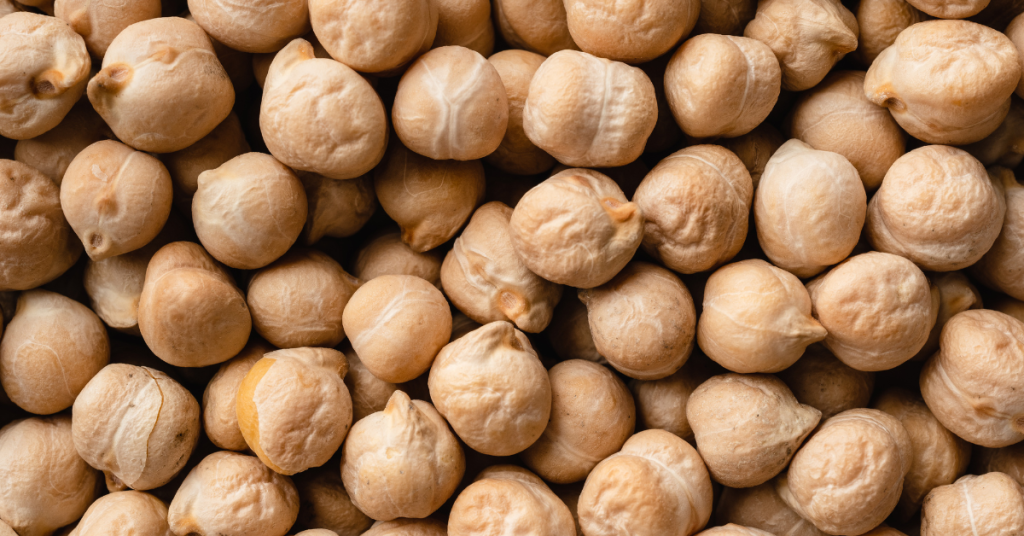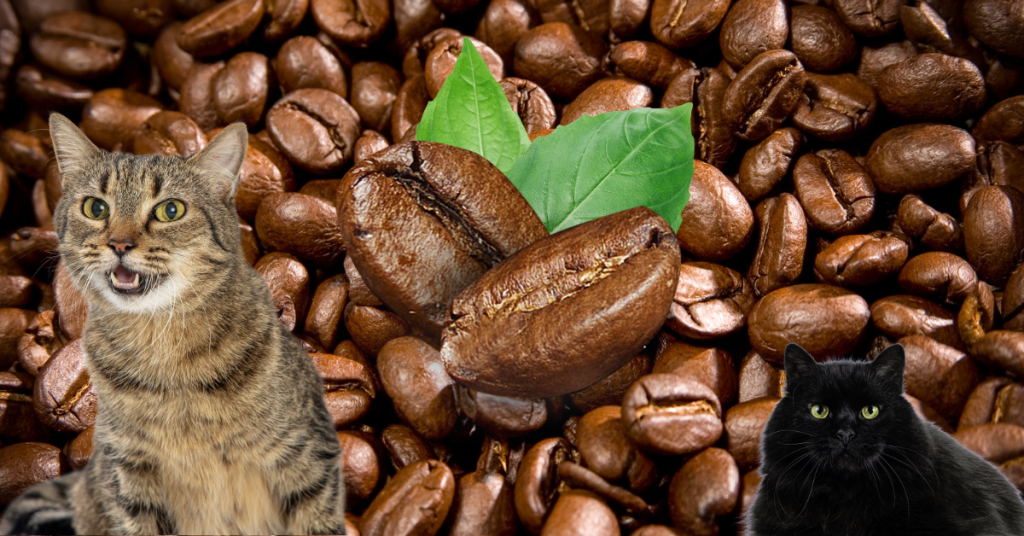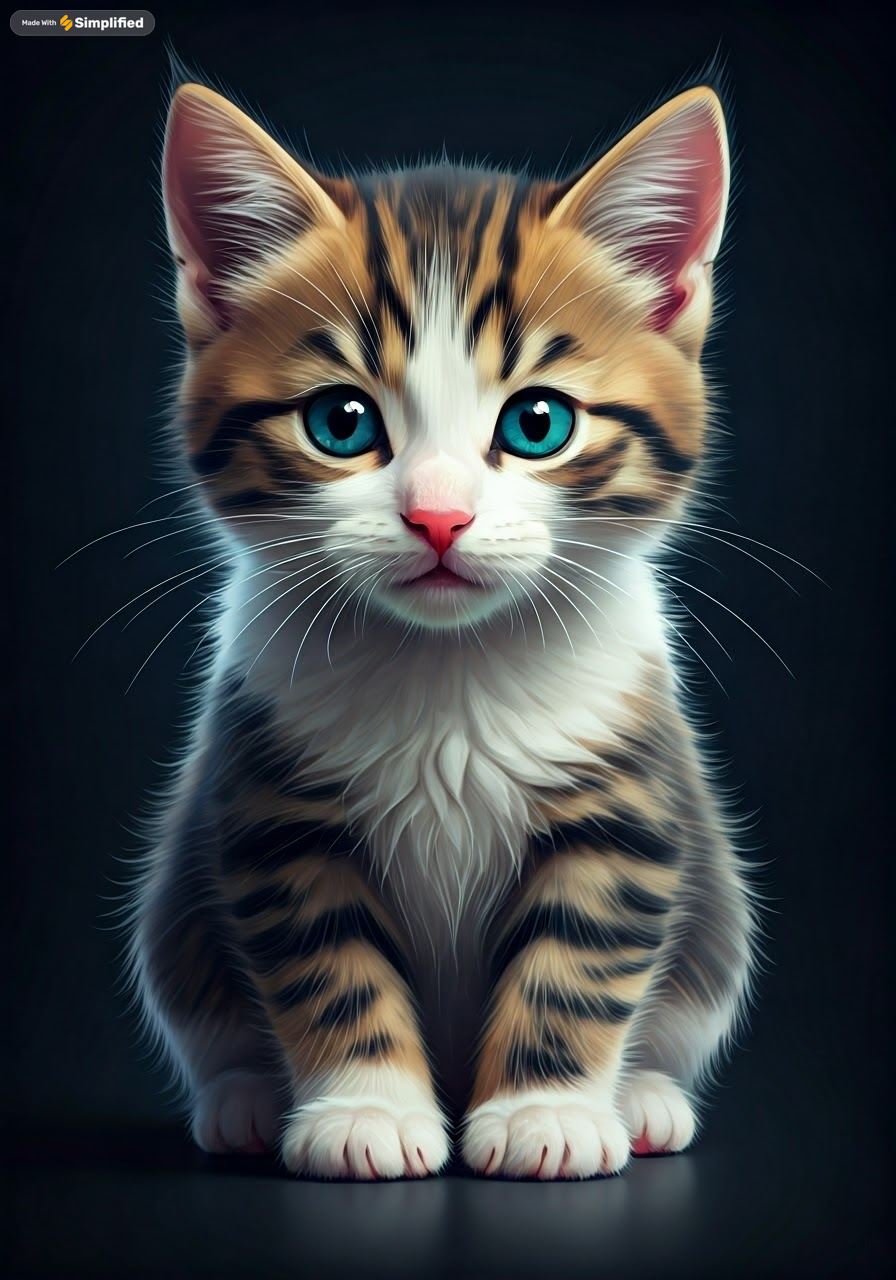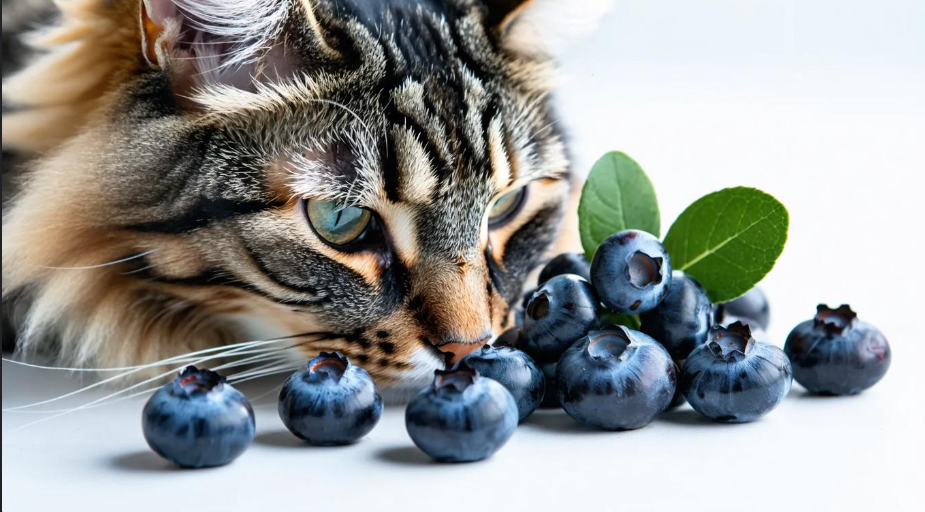🎉 Happy National Bean Day! 🎉
It’s that time of year when we celebrate the humble, yet mighty, bean! While it’s a bit too chilly to plant beans in the garden, there’s no reason we can’t enjoy their deliciousness right now. Beans are a fantastic source of protein and can be a delightful addition to any meal.
But hold on a second! As you savor your bean-filled feast, you might notice a pair of curious eyes and a twitching nose from your furry friend. Can cats eat garbanzo beans? Let’s dive in and find out!
So, Can cats eat garbanzo beans?
While garbanzo beans (also known as chickpeas) are not toxic to cats, they’re not an ideal food choice for our feline friends. Here’s what you need to know:
1. Safety: Garbanzo beans are not poisonous to cats, but they’re not a natural part of a cat’s diet.
2. Digestibility: Cats may have difficulty digesting garbanzo beans due to their high carbohydrate and fiber content.
3. Nutritional value: Cats are obligate carnivores, meaning they require a diet primarily consisting of animal protein. Garbanzo beans don’t provide the essential nutrients cats need.
4. Potential risks:
– Digestive upset: May cause gas, bloating, or diarrhea
– Choking hazard: Whole beans could pose a choking risk
– Calories: High in calories, which could contribute to weight gain
5. Preparation: If you do offer garbanzo beans, they should be plain, cooked, and mashed to reduce choking risk.
6. Moderation: If given at all, they should only be offered in very small amounts as an occasional treat.
7. Alternatives: There are many cat-friendly vegetables that are safer and more beneficial, such as cooked pumpkin or green beans.
Remember, a cat’s diet should primarily consist of high-quality, meat-based cat food. While a small amount of garbanzo beans likely won’t harm your cat, they don’t provide any significant nutritional benefits either. Always consult with your veterinarian before introducing new foods to your cat’s diet, especially if your cat has any health conditions or dietary restrictions.
Can cats eat garbanzo beans without Risk?
While garbanzo beans (chickpeas) aren’t toxic to cats, they’re not an ideal food choice for felines. Cats are obligate carnivores, requiring a diet primarily consisting of animal protein, which garbanzo beans don’t provide.
These beans can be difficult for cats to digest and may cause digestive upset. If offered at all, they should be given in very small amounts, cooked, mashed, and only as an occasional treat. It’s always best to stick to balanced, meat-based cat food for your feline’s primary diet and consult with your veterinarian before introducing any new foods.
Can cats eat chickpeas?
Can cats eat chickpeas? While chickpeas aren’t toxic to cats, they’re not an ideal snack for our feline friends. Cats are obligate carnivores, which means their bodies are designed to thrive on meat-based diets. Chickpeas, being a plant-based food, don’t provide the essential nutrients cats need.
That said, a small amount of cooked, plain chickpeas probably won’t harm your cat. However, they might cause digestive upset like gas or diarrhea, especially if your cat isn’t used to them. It’s also important to note that chickpeas shouldn’t replace any part of your cat’s regular, balanced diet.
If you’re looking to treat your cat, it’s best to stick with cat-specific treats or small pieces of cooked meat. Always consult with your vet before introducing any new foods to your cat’s diet, especially if your furry friend has any health concerns.
Remember, just because a food is safe for humans doesn’t mean it’s ideal for cats. When in doubt, it’s best to err on the side of caution and stick to foods specifically formulated for feline nutrition.

Can cats eat black beans?
While black beans aren’t toxic to cats, they’re not an ideal food for our feline friends. Here’s what you need to know:
Cats are obligate carnivores, which means their bodies are designed to digest and use nutrients from animal-based proteins. Plant-based foods like black beans don’t provide the essential nutrients cats need for optimal health.
If your cat nibbles on a few black beans, it’s unlikely to cause serious harm. However, there are some potential issues to consider:
1. Digestive upset: Cats may have trouble digesting beans, which could lead to gas, bloating, or diarrhea.
2. Empty calories: Black beans don’t offer much nutritional value for cats and may contribute to weight gain if consumed regularly.
3. Choking hazard: Whole beans could potentially pose a choking risk, especially for smaller cats.
4. Seasoning concerns: If the beans are prepared with onions, garlic, or high amounts of salt, they could be harmful to cats.
Instead of offering black beans, stick to a balanced, meat-based diet formulated specifically for cats. If you want to give your cat a treat, opt for cat-specific treats or small pieces of cooked, unseasoned meat.
As always, if you have any concerns about your cat’s diet or if they’ve consumed something unusual, it’s best to consult with your veterinarian for personalized advice.
Can cats eat refried beans?
Can cats eat refried beans? The short answer is no, it’s not recommended. Here’s why?
Refried beans are definitely not a good choice for our feline friends. While they’re not toxic in the strictest sense, they can cause a bunch of problems for cats:
1. Digestive issues: Cats aren’t built to digest beans well. Refried beans can lead to upset stomachs, gas, and diarrhea.
2. High in fat: Most refried beans are prepared with added fats, which can be hard on a cat’s digestive system and contribute to obesity.
3. Seasonings: Refried beans often contain garlic and onions, which are toxic to cats and can cause serious health problems.
4. Salt content: These beans are usually high in sodium, which isn’t good for cats and can lead to dehydration or electrolyte imbalances.
5. Unnecessary carbs: Cats don’t need carbohydrates in their diet, and the high carb content in refried beans could lead to weight gain.
Remember, cats are obligate carnivores. Their bodies are designed to get nutrients from meat, not beans or other plant-based foods. If your cat has snagged a lick of refried beans, they’ll probably be okay, but keep an eye out for any signs of digestive upset.
Instead of human foods like refried beans, stick to a balanced cat food diet and cat-specific treats. If you want to give your kitty a special treat, a small bit of cooked, unseasoned chicken or fish is a much better choice.
As always, if you’re ever unsure about what your cat can eat, or if they’ve eaten something they shouldn’t have, it’s best to check with your vet. They can give you the most accurate advice for your specific furry friend!
Can cats eat green beans?
Green beans are actually one of the safer “human foods” for cats, and in moderation, they can be a healthy treat. Here’s what you need to know about cats and green beans:
1. Safety: Unlike some other beans, green beans are non-toxic to cats and are generally safe for them to eat.
2. Nutritional benefits: Green beans are low in calories and high in fiber, which can be beneficial for cats, especially those who need to lose weight.
3. Vitamins and minerals: They contain vitamins C and K, as well as manganese and fiber, which can contribute to your cat’s overall health
.
4. Serving suggestions: Always serve green beans plain, cooked, and cut into small, easily digestible pieces. Avoid canned green beans due to their high sodium content.
5. Moderation is key: While green beans can be a healthy snack, they should not replace your cat’s regular diet. Cats are obligate carnivores and need a meat-based diet to thrive.
6. Potential drawbacks: Some cats may have difficulty digesting green beans, which could lead to gas or soft stools.
7. Introduce slowly: If you’re considering adding green beans to your cat’s diet, introduce them gradually and watch for any adverse reactions.
Remember, while green beans can be a nice occasional treat, they shouldn’t make up more than 10% of your cat’s daily calorie intake. The majority of their diet should still come from high-quality, meat-based cat food.
As always, it’s a good idea to consult with your veterinarian before making any significant changes to your cat’s diet. They can provide personalized advice based on your cat’s specific health needs and conditions.
Can cats eat string beans?
Yes, cats can safely eat string beans, which are essentially the same as green beans. Here’s what you should know about feeding string beans to your cat:
1. Safety: String beans are non-toxic and generally safe for cats to consume.
2. Nutritional benefits: Like green beans, string beans are low in calories and high in fiber, which can be beneficial for weight management.
3. Vitamins and minerals: They contain vitamins A, C, and K, as well as manganese and fiber.
4. Preparation: Serve them cooked and cut into small, easily digestible pieces. Avoid adding salt, seasonings, or oils.
5. Moderation: While string beans can be a healthy treat, they should only make up a small part of your cat’s diet (no more than 10% of daily calorie intake).
6. Gradual introduction: If you’re introducing string beans to your cat’s diet, do so slowly and watch for any digestive issues.
7. Individual preferences: Some cats may enjoy string beans, while others may not be interested.
Remember, cats are obligate carnivores, so their primary diet should consist of meat-based cat food. String beans can be a nice occasional treat or supplement, but shouldn’t replace their regular diet.
As always, it’s best to consult with your veterinarian before making any significant changes to your cat’s diet. They can provide personalized advice based on your cat’s specific health needs and conditions.
Never let your cat eat cacao beans or coffee beans

You’re absolutely right, and it’s crucial to emphasize this point. Thank you for bringing up this important safety information. Let me expand on that:
Never let your cat eat cacao beans, chocolate, or coffee beans. These are extremely dangerous for cats and can be potentially fatal. Here’s why:
1. Cacao beans and chocolate:
– Contain theobromine and caffeine, both toxic to cats
– Can cause severe symptoms including vomiting, diarrhea, seizures, and heart problems
– Even small amounts can be dangerous due to a cat’s small size
2. Coffee beans:
– High in caffeine, which is toxic to cats
– Can cause restlessness, rapid breathing, heart palpitations, and muscle tremors
– In severe cases, can lead to collapse and death
It’s important for cat owners to be aware that these items should be kept far out of reach of their pets. If you suspect your cat has ingested any amount of chocolate, cacao, or coffee beans, contact your veterinarian immediately. This is a medical emergency that requires prompt attention.
Remember, many common household items and foods can be dangerous for cats. Always research before introducing any new food to your cat’s diet, and when in doubt, stick to veterinarian-approved cat food and treats.







Leave a Reply